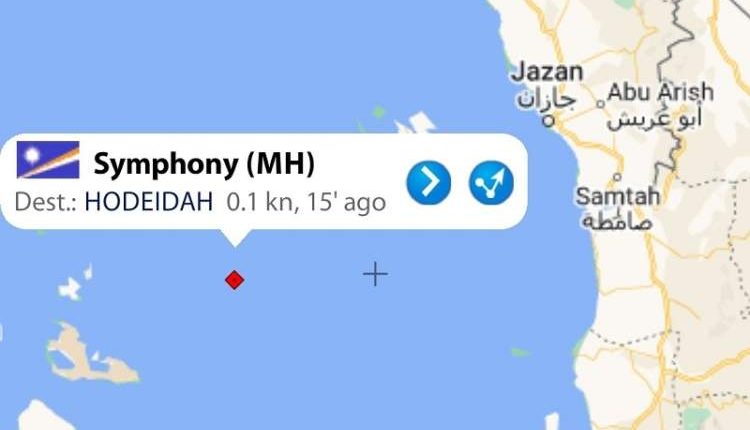US-Saudi Aggression Seizes New Fuel Ship Reflecting Its Lack of Commitment to UN-brokered Truce
Yemen Petroleum Company (YPC) announced on Wednesday that the Saudi-led aggression detained a diesel ship despite its inspection and obtaining United Nations permits to enter the besieged ports of Hodeidah.
The move raises the number of fuel ships seized by the aggression since the truce was renewed on August 2, to three, it added.
“In a new violation of the temporary truce, the US-Saudi aggression is holding the diesel ship, Symphony, despite its inspection and obtaining entry permits from the United Nations,” the official spokesman for YPC Essam Al-Mutawakel said in a press statement.
Mutawakil indicated that the UN representative in Yemen Hans Grundberg “did not commit to removing the obstacles and fulfilling the entry of the agreed-upon ships, despite his prior knowledge that detention entails delay fines incurred by citizens.”
The spokesman of the YPC attached to the statement a copy of the UN permit for the diesel ship, Symphony, which was inspected in Djibouti under the UN mechanisms.
The US-Saudi aggression had seized the gasoline ship, Sea Hart, in the early days of renewing the truce after the last extension and following the commitment of the UN envoy to remove obstacles and fully fulfill the terms of the agreement to ensure the regular flow of fuel to the port of Hodeidah.
A UN-brokered truce in Yemen first came into effect on 2 April, and for an initial two months. It was renewed for another two months in June.
The deal stipulated halting offensive military operations, including cross-border attacks, and allowing fuel-laden ships to enter Yemen’s lifeline Hodeidah port and commercial flights in and out of the airport in the capital Sana’a “to predetermined destinations in the region.”
However, in light of UN silence, the Saudi-led aggression was still obstructing flights to the Sana’a International Airport in Yemen’s capital and detaining fuel ships that were headed to the country. The fires of the aggression side did not subside along the fronts, on the borders and inside, including shelling, reconnaissance, development and crawl.
When the period specified for the military and humanitarian truce was nearing its end, the US-Saudi aggression seemed to be in a hurry to adopt the option of extending it for the third time to freeze the battle in Yemen and its economic repercussions away from global energy markets.
The forces of aggression are pushing for an extension, not out of concern for peace, but rather out of fear that the escalation will add more complications to the international scene in addition to the crisis imposed by the Russian-Ukrainian war.
A truce, the positive effects of which have not been felt by the citizens over the past months, despite its broad headlines. Commercial flights to Cairo are still stumbling until today, and the navy of aggression continues to pursue fuel ships without respect for agreements or any regard for international laws and norms.
Double standards regarding the violations of the forces of aggression and its provocative practices is a double UN policy that has brought the crisis in Yemen to its current level of misery and deprivation that has affected everyone far from justice and the realization of the rights of the Yemeni people.
The truce has been renewed for an additional two months through 2 October, UN Special Envoy for Yemen, Hans Grundberg, announced on Tuesday.
The extension includes a commitment by the Saudi-led aggression and the Salvation Government to intensify negotiations to reach an expanded agreement as soon as possible.
The UN representative to Yemen Hans Grundberg confirmed that the extension of the truce in Yemen for two additional months “includes a commitment to provide fuel and its regular flow through the port of Hodeidah.”

